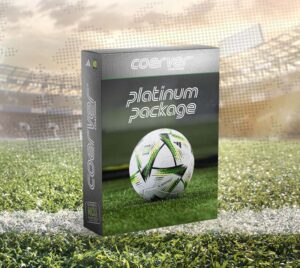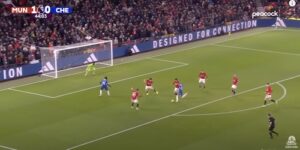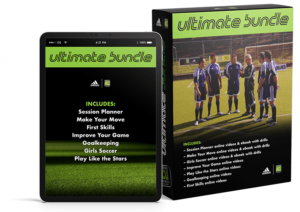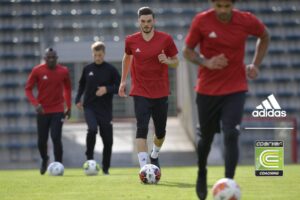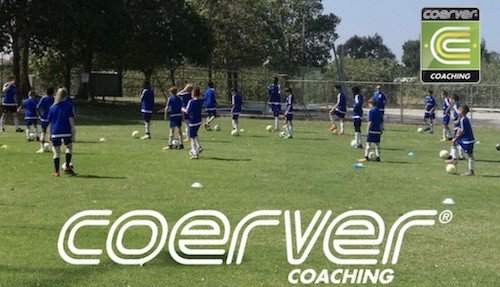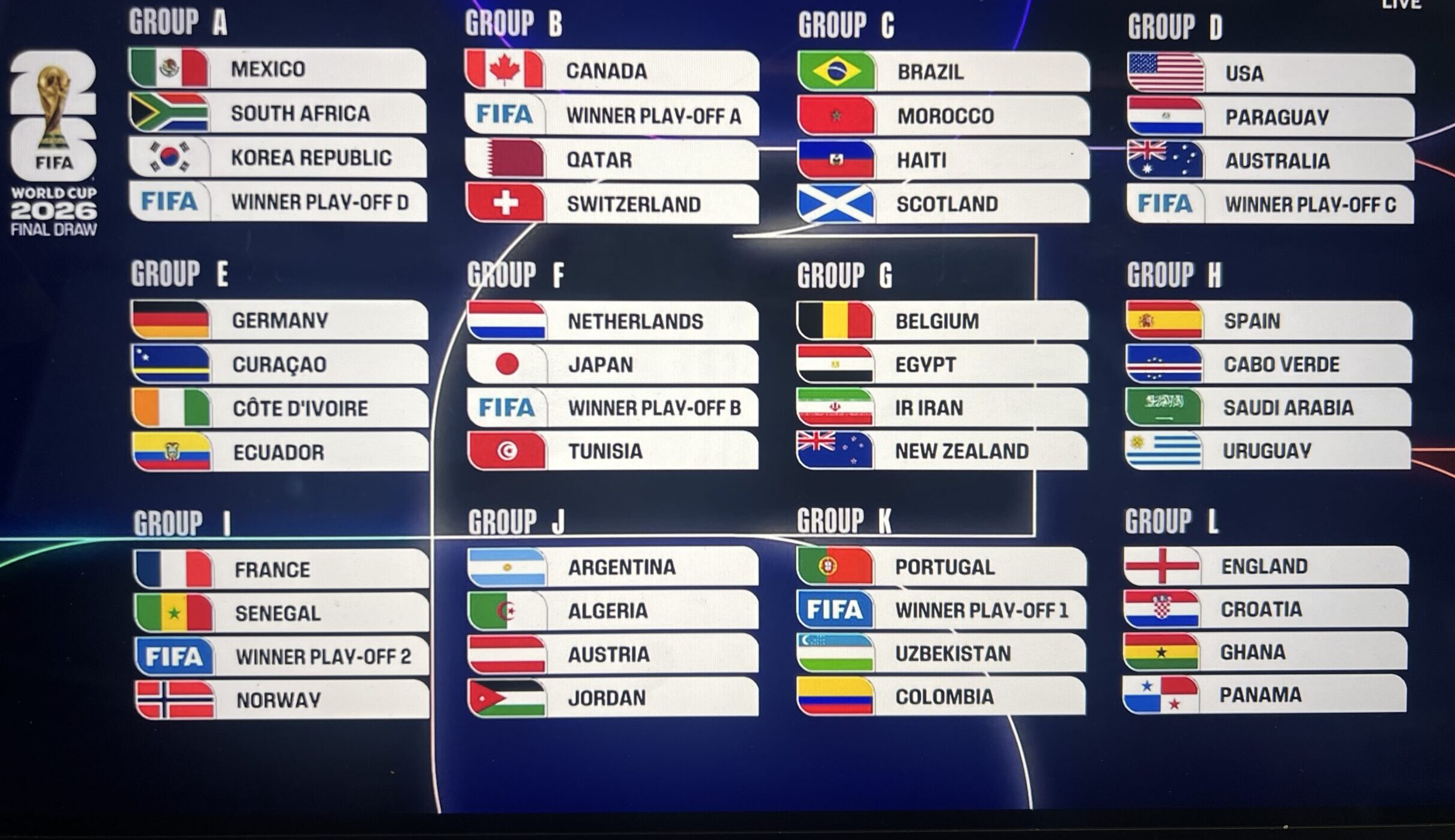Energy for soccer: What should you eat before a big soccer game? You need to eat something that will give you energy throughout a 90 minute game. Pasta is it’s one of the best sources of energy for soccer players the day before a big game. Maybe that’s why the Italians won the Euro 2020 tournament this year!
To have the fuel to run during an entire soccer game you need to eat complex carbohydrates like breads, grains, and pastas. But let’s learn more about soccer nutrition and what you should eat so you can play at the highest level.
How to improve your fitness and stamina – in today’s tutorial video we will teach you how you can learn to improve your fitness level and your stamina if you feel you need more energy in a football match.
Fitness and stamina is absolutely key in football, so if you learn these 3 football fitness drills where we teach you how to improve your stamina and energy, you will be able to run faster and longer in a football match, so you can focus on playing well for the entire 90 minutes. In today’s football drills tutorial video, JayMike is wearing the PUMA ONE 5.1.
No one sees what their body does with food. It’s not like you have a window into your stomach and can see how what you had for lunch affects your body. You can’t just pop open the hood and check to see if everything’s running correctly. Even if you could see into your digestive tract, you’d need super-vision, because everything that matters happens on a microscopic level.
Your stomach might talk back to you though, if you’ve eaten too many sweets or if you’re in a bad mood or more anxious than usual before a soccer game, you might just need to eat a good meal or an energy bar.
You see, every muscle in your body derives energy from glucose, which is a very basic, very tiny form of sugar. Glucose is stored in the form of glycogen. It’s like when you fold your clothes to put them in your drawers—you change its shape so that it can fit more efficiently. Well, that’s what your body does with glucose.
It “folds” the glucose molecule into glycogen and then “unfolds” it when it needs it. Of course, the science behind your body’s metabolism is a lot more complicated than laundry, but what you need to know is that glycogen plays a vital role in your body’s ability to perform well.
Remember to maintain energy for soccer: Muscle fibers are made of protein, so make sure to get enough protein in your diet. Overall, try to eat a balanced diet with plenty of fruits and vegetables and skip the fast food.
All too many soccer players skimp on glycogen by eating too few carbohydrates. While a soccer athlete should be getting 2400 to 3000 carb calories per day, most only get around 1200. At the level, you’re already behind when you start a practice session or game, and you can drain your carbohydrate reserves by the second half of a game! That’s because the alternating fast and slow running can quickly use up the glycogen in your legs. Even just 30 seconds of running during a game can trim your glycogen stores by 30 percent!
To give your body an adequate supply of glycogen for soccer practice, training, and the big game, eat carbohydrate-rich foods like bread, potatoes, pasta, cereal, low-fat dairy products, fruits, and vegetables. Focus on complex carbohydrates (those with a low to moderate glycemic index) like oatmeal, bran, and brown rice; these take longer for your body to break down, which gives your cells more time to turn the glucose into glycogen rather than fat. Plus, they usually contain more vitamins, fiber, and minerals, all of which help your body stay healthy and strong.
When you do eat simple carbohydrates, stick to fruit, low-fat milk, and yogurt. Avoid refined foods, which are simple carbohydrates devoid of vitamins and minerals, like white rice, sugar, alcohol, candy, soda, and anything made with white flour.
Ideally, complex carbs combined with some minimally-processed simple carbs should make up about 65% of your diet. In other words, every time you look at your plate, make sure that at least half of it consists of nutritious carbohydrate-rich food.
DID YOU KNOW? Eating complex carbs will actually reduce your chance of injury. That’s because the #1 cause of injury is fatigue. By eating energy-rich foods that your body can store properly and release in a timely manner, you’ll have sustained energy through an extended period of time, and you’ll be less likely to hurt yourself on the soccer field.
Unfortunately, most soccer players focus too much on protein. You might’ve already heard that proteins are the building blocks for muscle. And muscle is the key to strength and performance. It’s only natural to think that if you want better strength and performance, then to get more muscle, eat lots of protein. But that’s not how it works behind the scenes—under the hood.
Protein-rich foods like meat, cheese, and whole milk have two things working against them: (1) They are tough and difficult for your body to break down, and (2) they usually contain a lot of fat—which you DON’T want.
Think of it like putting gas in a car. Eating too much protein is like driving 50 miles just to get to the gas station. Sure, the gas might be cheaper there, but you’re wasting so much fuel just to get it! That’s what it’s like for your body burning calories just to digest a hamburger. On top of that, the gas (i.e. protein) you get has a bunch of other stuff (i.e. grease and fat) mixed into it that’s no good for the car. It sounds like a pretty bad deal, doesn’t it?
If you don’t want to cheat your body, and build up your energy for soccer, limit your consumption of the following foods:
• Red meat
• Cheese
• Pork products
• Fried foods
• Whole milk
• Butter or margarine
That doesn’t mean you can never eat those foods again. Just make sure you give your body what it needs before you give it what it wants. If you’ve eaten a healthy meal of whole wheat pasta and chicken in fresh tomato sauce with a side of steamed spinach with roasted garlic and a glass of ice cold water, and you’re still not satisfied, then go ahead and give yourself a small treat. You’ve earned a dessert just by starting to focus more on what you eat and put into your body.
Even then, you can often substitute your craving for unhealthy foods with a more nutritious alternative. For example, if you really want to eat a hamburger, go to a quality restaurant and treat yourself to organically raised beef, or at least purchase a leaner version at the supermarket. It’ll be higher quality and lower in fat.
STOP! Make sure you talk to a doctor if you are making major changes to your diet!
Overall, your body will be happy if from day to day, you eat a well balanced diet. Have a little bit of everything rather than a lot of one thing. Make it a point to incorporate a fresh fruit or vegetables into every snack and meal. Instead of munching on an entire bag of potato chips, have a few carrots.
Drink a glass of water. Then have a hard-boiled egg. Then have an apple. And maybe a banana. By then, you’ll probably have lost your craving for chips, and you’ll have given your body a wide range of nutrients that it can work with. So mix it up and don’t just eat too much of one thing.
It’s the glycogen that you store on a daily basis that will come into play when you’re on the soccer field. If you watch your diet every day, you’ll only need to make small adjustments for those times right before and after intense soccer training session.
Learn more about eating right and energy for soccer:





